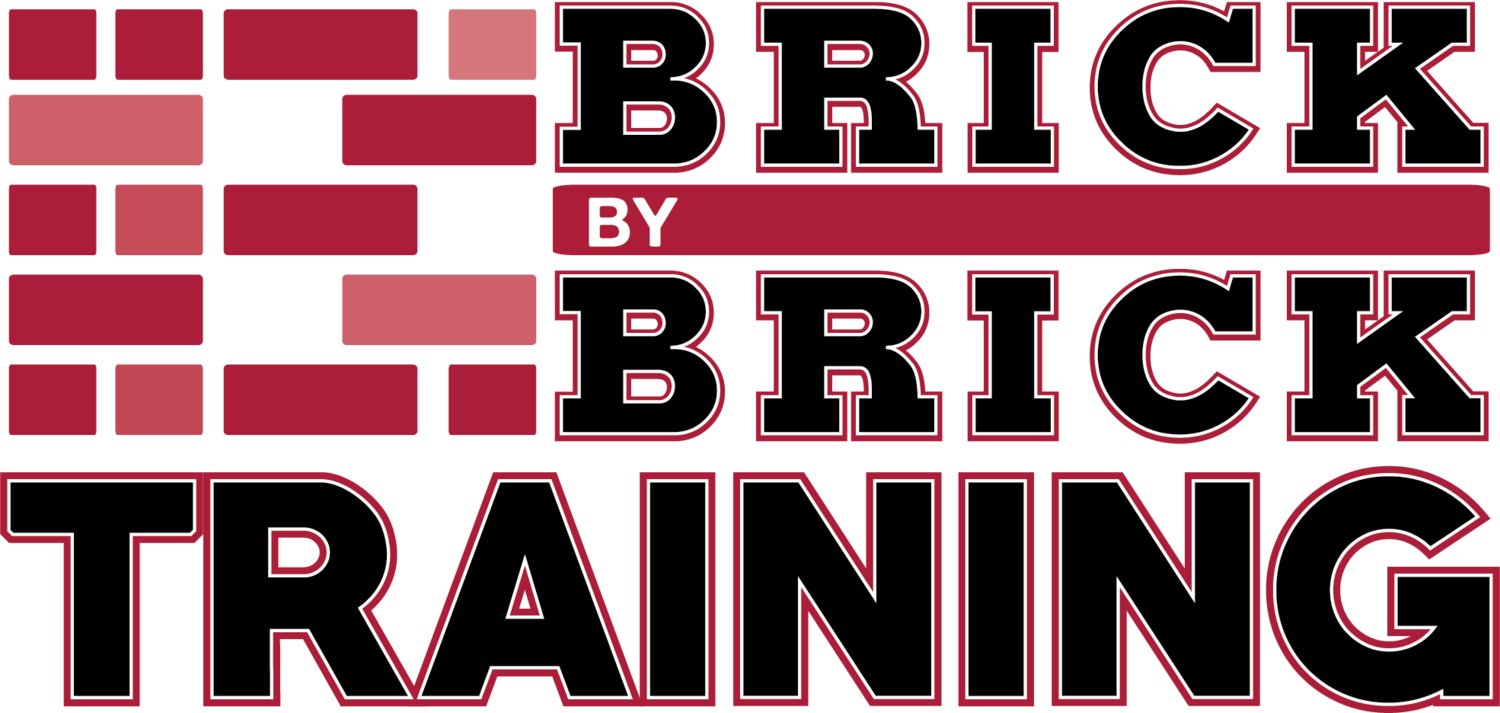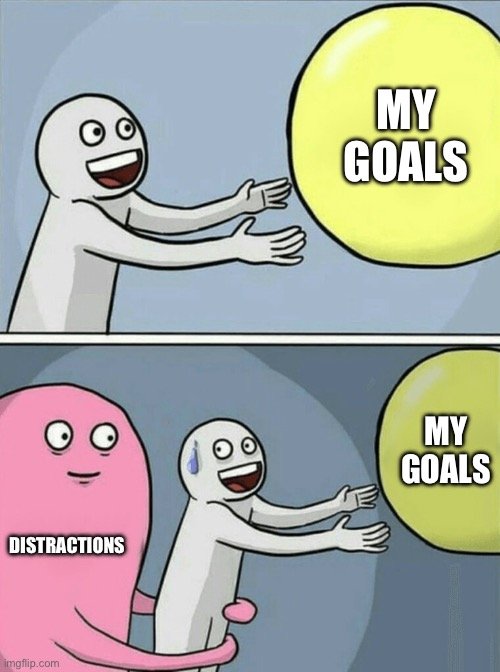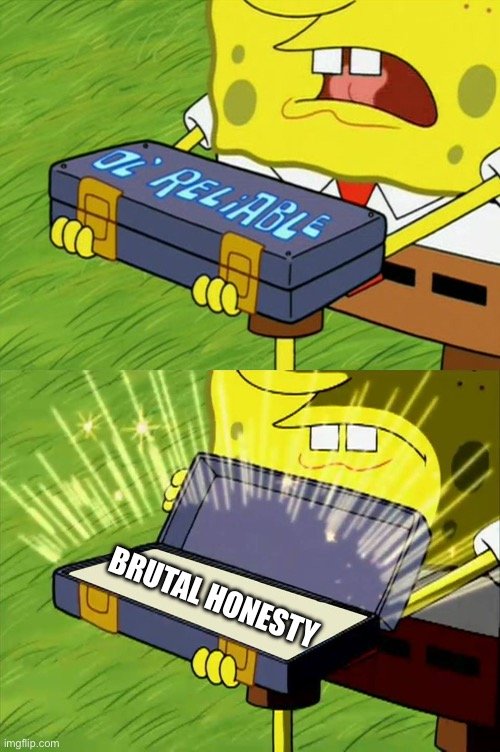#10 - Reverse Engineer Your Year
At the time of writing this we are 11 days into 2024. Many of us have made some lofty goals for our health & fitness. “I’m going to lose 60 pounds this year”, or “I’m going to run a half-marathon”, or “I’m going to increase my squat by 100 pounds”.
Look those are all great goals. But also… they’re kind of shitty goals.
(Yeah I’m going to be ruffling some feathers here)
So the thing is if you are saying these goals to yourself you may very well be capable of achieving that this year. That really doesn’t matter though. What matters is what will you be PROUD of achieving. What matters is what will you TAKE ACTION on to achieve these goals.
So before we get into the weeds on this post (might be a long one) let’s just humor me for a moment.
If you wanted to lose 60 pounds this year but lost 10 instead… would you be proud? If you wanted to run a half-marathon this year but got up to 10 miles… would you be proud? If you wanted to increase your squat by 100 pounds but did so by 30 pounds… would you be proud?
In my opinion YOU SHOULD BE PROUD OF ALL OF THESE RESULTS.
I am not saying you should be satisfied with underachieving. What I am saying is that one of the biggest issues when it comes to people achieving their health & fitness goals is lack of patience and lack of gratitude.
If you were patient, grateful, and proud of these results (albeit not exactly what you wanted) you would set yourself up to achieve those results the following year or maybe in 3 years… INSTEAD OF FINDING YOURSELF IN THE SAME OR WORSE POSITION YEAR AFTER YEAR AFTER YEAR AFTER YEAR.
Ok… that’s the intro folks. Let’s dig into things with talking about goals as a concept.
Goal Setting
Before we get into anything too deeply I want to make a point that is EXTREMELY IMPORTANT.
YOU NEED TO PHYSICALLY WRITE DOWN YOUR GOALS AND PLANS. Seriously, bust out the pen and paper. It doesn’t need to be fancy whatsoever. It needs to be tangible and it needs to be something you will see frequently to be a reminder of what is important to you. This is step one. Now let’s move to step two.
When it comes to setting goals we need to be specific. Nothing says “I will quit this gym in one month” like making your goal “I’m going to get healthier this year and exercise more”. The lack of specificity here means you have no north star. You have nothing to indicate whether you are on track or need intervention.
So when I am talking about specificity what do I mean?
Usually it means numbers. Numbers are great because they do not lie. You either hit the mark or you didn’t.
So for example:
Turn “I will walk more” into “I will average “X” amount of steps per day”
Turn “I will lose weight” into “I will lose 2-4 pounds per month“
Turn “I will eat better” into “I will have no more than ‘X’ amount of meals from restaurants per week”
Turn “I will get stronger” into “I will commit to ‘X’ workouts per week’
These numbers are something you can look at over the year and determine how you are progressing.
So we handled specificity now let’s handle the 2 types of goals.
There are objective and behavioral goals.
Most people only think in terms of objectives. This is the “I’ll lose those 15 pounds this year” or “I will hit that 225 pound bench press this year”.
These goals are good and not-so-good.
The good is that these goals are exciting and very emotionally rewarding when achieved. They are also crystal clear.
The not-so-good is that these goals don’t really give you any roadmap to achieving them. Just wanting to lose 15 pounds is going to make you lose 15 pounds. In fact, if you want it so badly but don’t have any direction you will only end up more disappointed because you will be confused and frustrated at the end of it.
So your goals should absolutely include these objective goals… but we’ll need to support them with behavioral goals as well.
The behavioral goals will act as stepping stones to the goals that are most emotionally important to you.
So we need to break down HOW to achieve the objective goal. Then we turn that guide into behavioral goals. Let’s use the bench press goal for example.
We can now add the behavioral goal of “I will perform 6-12 sets of bench press per week” to our goal list. This gives us direction and keeps us honest on a weekly basis.
I know the goal stuff seems simple and straightforward but let me redirect you back to my very first point in that YOU NEED TO WRITE THESE DOWN.
I say this because it is an absolute guarantee that your head will fuck with you at some point this year. It might happen every month. It might happen every week. It might even happen everyday for a period of time.
This is when you PHYSICALLY LOOK at your list so you can think logically and clear headed.
You got this as long as you are patient, grateful, and proud.
Now let’s move on to the next aspect of Reverse Engineering Your Year: staying focused.
Staying Focused
I will give you best advice right away with no hesitation and it’s going to annoy that I am bringing it up yet again. Say it with me: LOOK AT THE LIST YOU WROTE DOWN.
This is just like past you talking to current you. The better and more emotionally powerful your list is the better this simple method will work.
Alright now I know you will want more than that so let me go through popular strategies and give you my take on them.
Before I do that let me just quickly point out what this section should really be titled: Not Getting Distracted. When people ask how to stay focused this is what they are really looking for. This is bringing me to my first popular strategy.
De-Clutter Your Life
This consists of physical and digital items. So for one you might have to tidy up your house and get rid of unused clothes, technology, books, movies, decorations, tools…. there is no wrong approach. Just create some literal space for you to breathe and easier dictate the environment of your home base.
The more important one (and definitely more difficult one) is the digital items. I’ve talked about this before to people but I cannot encourage you enough to read Digital Minimalism by Cal Newport. This will help more than I could ever hope to in this article alone. But the gist is to determine what parts of your digital habits actually provide benefit to the life you want to live. So maybe you need to spend some time with Instagram removed from your phone…trust me you won’t die. Or maybe you download it one day per week and remove it at the end of the day. The point is to free yourself from the digital things occupying space inside of your mind.
These 2 things combined will give you space and time… which will make achieving your goals MUCH more realistic.
Now what about a popular strategy that I will call:
Seeking Motivation
Motivation is something everyone wants. It’s the perceived magic bullet to all of our personal problems.
Well maybe that’s true, I don’t know. What I do know for an absolute fact is that your motivation WILL FADE. In these moments many people go searching for motivation.
They read self-help books. They watch motivational movies or videos on YouTube. They spend precious time looking to refill the proverbial gas tank that is their motivation.
Now the thing is… sometimes this actually works. Sometimes you read something that absolutely makes perfect sense and it puts things into perspective for you. Sometimes you watch a movie and it reminds you to try just a little bit harder.
BUT… even when this works it just doesn’t seem to last long.
So yeah, I won’t tell you to not search for motivation. What I will tell you is to pay very close attention to what actually succeeds in motivating you. Don’t stray from that path of success. Don’t be tempted by the other distractions disguising themselves as helpful tools.
So I want to go over my last strategy and it is one that is the least popular but (next to simply looking at your personal list) it is the most effective in my opinion.
Practicing gratitude
“Really Dillon?”
Yes, really.
Look, I’ll be honest this is something I struggled with for a very long time because I spent a long time simply not needing to do this to remain focused.
The thing is no one makes a concerted effort to practice gratitude when things are going great. You just ride that high… I get it.
Gratitude is an absolute necessity, though, to remain focused during times of trouble. These times of trouble might be a day. They might be a week. They might be a month. Troubles can even creep into your life on/off for what seems like an unending amount of time.
Here is what I know:
When I practice gratitude I am a better husband.
When I practice gratitude I am a better father.
When I practice gratitude I am a better business owner.
When I practice gratitude I am a better son.
When I practice gratitude I am a better coach.
So what do I mean exactly by practicing gratitude? Well if you want to go above and beyond I think it is absolutely AMAZING idea to keep a gratitude journal. Bonus points if this is a physical written journal.
You can also keep a list in your notes app on your phone to serve this purpose.
Here is what I do. Every few nights before I go to bed I text myself some things that made me happy and grateful. It’s the last thing I do before I put my phone down. This means that the first thing I see when picking up my phone the next morning is that text. It is a very simple, but powerful, way to start my day.
Honestly for me this has become absolutely necessary because of how much time I spend with people in my gym. I am lucky to have an amazing community of people around me but let’s be honest they don’t want some guy coming into the gym in a sour ass mood every time his life hits a rough patch. This is my business… not my therapy. I need to be able to convey an authentically positive mindset when running my gym. This isn’t always the easiest thing to do. The time to work on those issues though are NOT in my own business. So yeah… being able to remind myself of all of the great things in my life to keep me focused on providing a good service to those people who pay me to do so… it’s pretty damn important.
When To Course Correct
We live in the real world where we don’t always meet our goals. It doesn’t make us bad people. It also doesn’t give us the excuse to give up.
So I’m going to break this down into 3 sections:
how often do we evaluate
when to decide to course correct
HOW to course correct
HOw Often do we evaluate
Well, if you set effective goals then you should have a relatively good idea on where you are at all times. It shouldn’t come down to one random day when you take a minute to look at things that you realize “holy shit I’ve been going the wrong direction for 3 months!”
I recommend, though, to sit down and take a deep look at your progress at least every four months. This is when you sift through your goal list and evaluate every aspect of that list and see what is going well and what is not.
Once you do that then we get to our next point.
When to decide to course correct
This will be highly dependent on what your specific goal is. Let’s use weight loss because it is a common example.
If your goal was to lose 45 pounds this year and you are four months in and down 5 pounds.. it is time to course correct. If you are down 10 pounds I would stay the course.
What does that 5 pounds difference signify to me? I look at the 5lb weight loss and say in 2 years on that trajectory we still don’t hit our goal so something needs to change. I look at the 10lb weight loss and say in 2 years on that trajectory we smash that goal so just be patient and grateful.
This hidden 2nd year is what I recommend to use in these situations.
Pretty much it comes down to being honest with yourself on your current progress as well as evaluating whether or not your goal is worth spending 2 years to achieve instead of 1. Hint: if it is a health & fitness goal it almost always is worth the wait because guess what… you will ALWAYS need your health & fitness.
Now if the goal is to, say, learn to play Thunderstruck on guitar and you haven’t even bought the guitar yet… it’s time to course correct.
So, final point is what exactly does course correcting look like?
HOW TO course correct
There are 2 answers to this:
change your stated goal
change your strategy to achieve said goal
“Wait isn’t changing your goal just like giving up?”
Yup… it’s ok to quit sometimes. It’s NOT ok to quit without trying though.
So if the goal is health & fitness related there is a good chance that you should try to stick with the goal you set.
The exception would be when your current trajectory is leading to success just not as much as your goal was hoping to be.
Let’s discuss the weight loss example above of the person who wanted to lose 45 pounds but is down only 5 pounds in four months. If this is an individual who is extremely stressed out about weight loss and isn’t in a dire need to drastically change their health then it is totally plausible that I might encourage them to be happy with losing 15 pounds this year instead of 45. What if this person just had a change of career? Or a death in the family? Or got their car stolen? Or got divorced. There are so many things that are worth processing correctly without being distracted by the goal of losing more weight than they already are.
Now if we use this same scenario to talk about 2nd way to course correct it will look different for sure. If the person is only down 5 pounds and they haven’t had any major life changes to speak of it is totally plausible that I encourage them to take a deep breath because we are going to stay the course, albeit with different strategies.
The point is you have to look, honestly, at your life situation and how deeply you actually want to spend energy on making certain changes.
Conclusion
I really hope you use this information to set yourself up for an incredibly rewarding year.
I also want to encourage you to use this format for any type of goal.
health & fitness
skills
finances
education
spirituality
interpersonal relationships
Do not hesitate to reach out to me via email (brickbybrickgym@gmail.com) for any advice on using this information.
I would also love if you shared this article to anyone who you think could benefit from it.
Let’s make 2024 (or whenever you are reading this) a great year.




